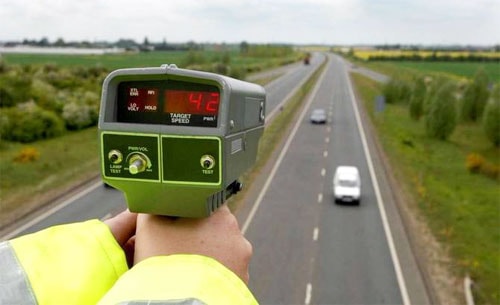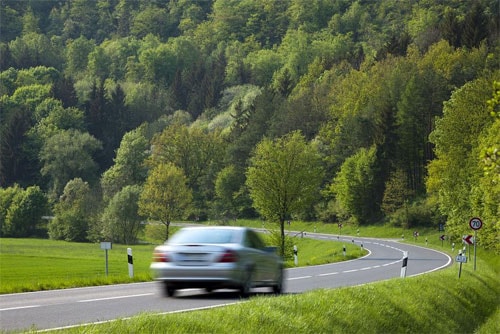How do European countries punish traffic violations?
Plus or minus, both systems must also be tough enough to prevent the rich from flouting traffic laws because they can easily pay fines.
Instead of imposing a fixed fine for a particular offense, such as not using a turn signal,Some European countries deduct a certain percentage from the monthly income of violators.
 |
Fines are compared between European countries when offenders exceed the speed limit by more than 20 km/h. Photo: The Inquisitr |
For example, in Finland, fines are calculated after social insurance contributions, taxes, fees and a “basic living allowance” (about $300) have been deducted from gross wages.
The remaining amount divided by 60 will result in a daily fine, not less than $7, multiplied by the severity of the violation. For each dependent, about $4 will be deducted from the daily fine.
That's just the minimum fine in Finland, as police can increase economic penalties for irresponsible violations. Day fines also apply only to certain violations, while others are assessed under the standard system.
The most typical application is speeding fines. If a driver is 20 km/h faster than the posted limit, he or she receives a regular fine. But once a speed camera detects that someone is going 21 km/h over, a “day fine” system is introduced. The difference in speed is only 1 km/h, but the economic difference is huge.
Finland is not the only country in Europe that has this system. The list below was compiled by Autoevolution and all show fines for going 20 km/h over the speed limit.
 |
In some countries, fines depend on where the violation is committed, such as in a city or on a highway. Some places have a fixed fine regardless of where the violation is committed. Photo: TripSavvy |
Germany, Greece, Luxembourg and Austria are the most lenient countries when it comes to speeding by more than 20 km/h. In Greece, the fine is $60 regardless of where the violation is committed. In Germany, the fine is slightly less for speeding on the highway or suburban roads than in the city.
Austrians also face a $60 fine for exceeding the 20 km/h speed limit outside the city, slightly less on the highway, and even less in the city. Similar fines apply in countries like Bulgaria, Croatia, Estonia, Poland, Romania and Türkiye.
Belgium, France, Finland, Italy, Ireland, Spain, the Netherlands and the UK are among the countries with "significant" fines for drivers exceeding the speed limit by 20 km/h, but not much more.
In the UK, fines are under $120 regardless of where the violation is committed. Ireland is lower. The Netherlands is more complicated depending on where the violation is committed, and ranges from over $120 to $180.Regulations in Belgium are stricter, with violators having to pay around $180 regardless of whether they speed in the inner city or suburbs.
Drivers are hit with the highest fines for speeding in Denmark, especially in the city where they can cost around $475. Less severe fines are on the highway ($390) and on roads outside the city ($240).
Other places with similar fines to Denmark include Portugal and Switzerland.
According to VNE
| RELATED NEWS |
|---|


.jpg)





